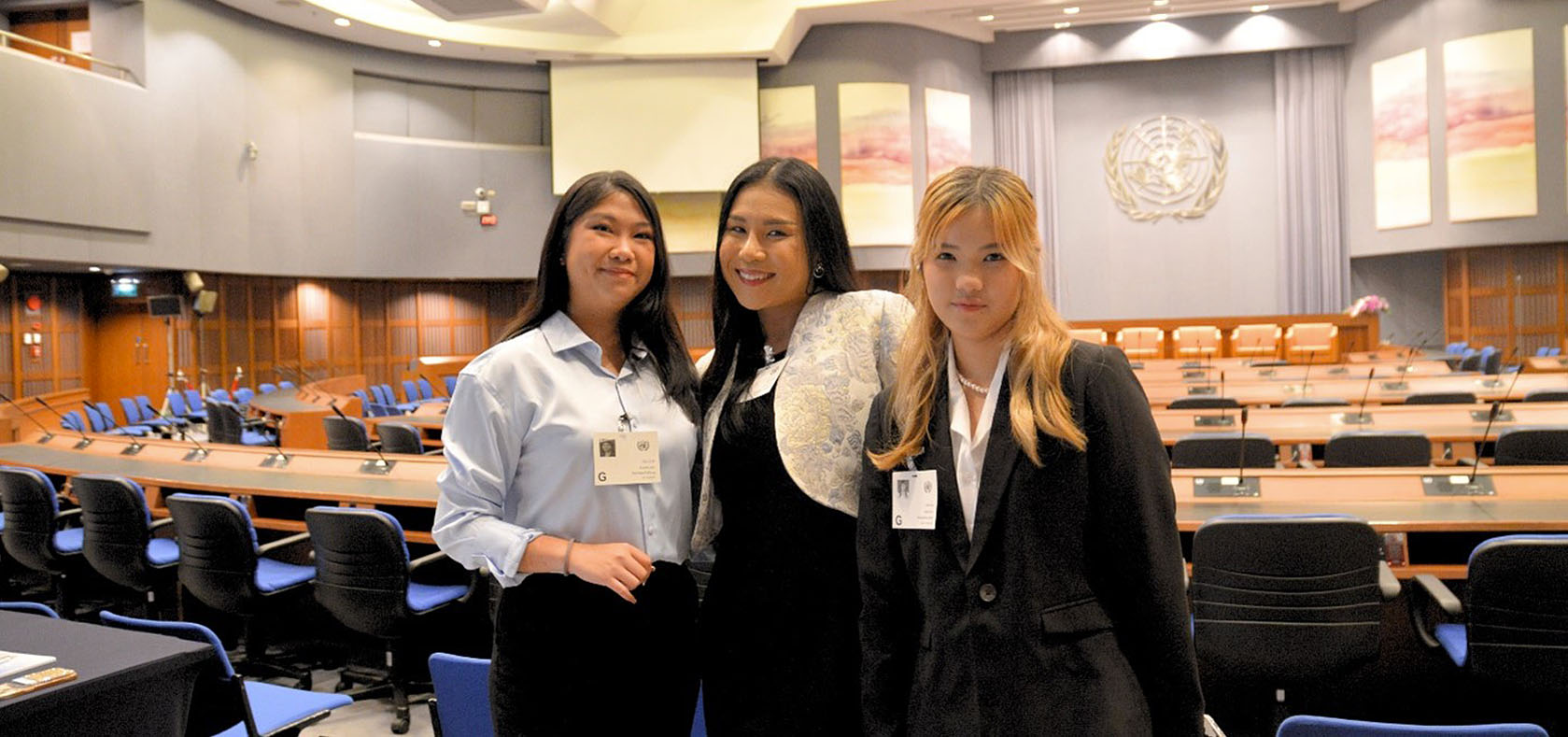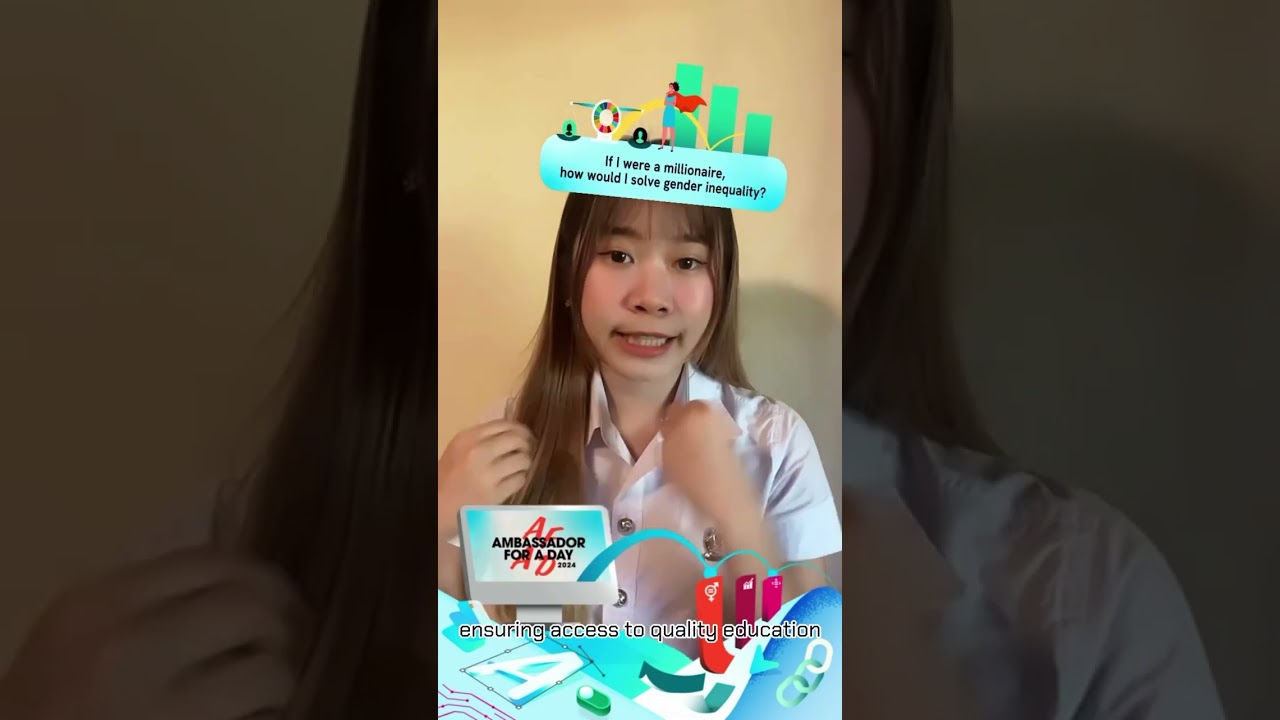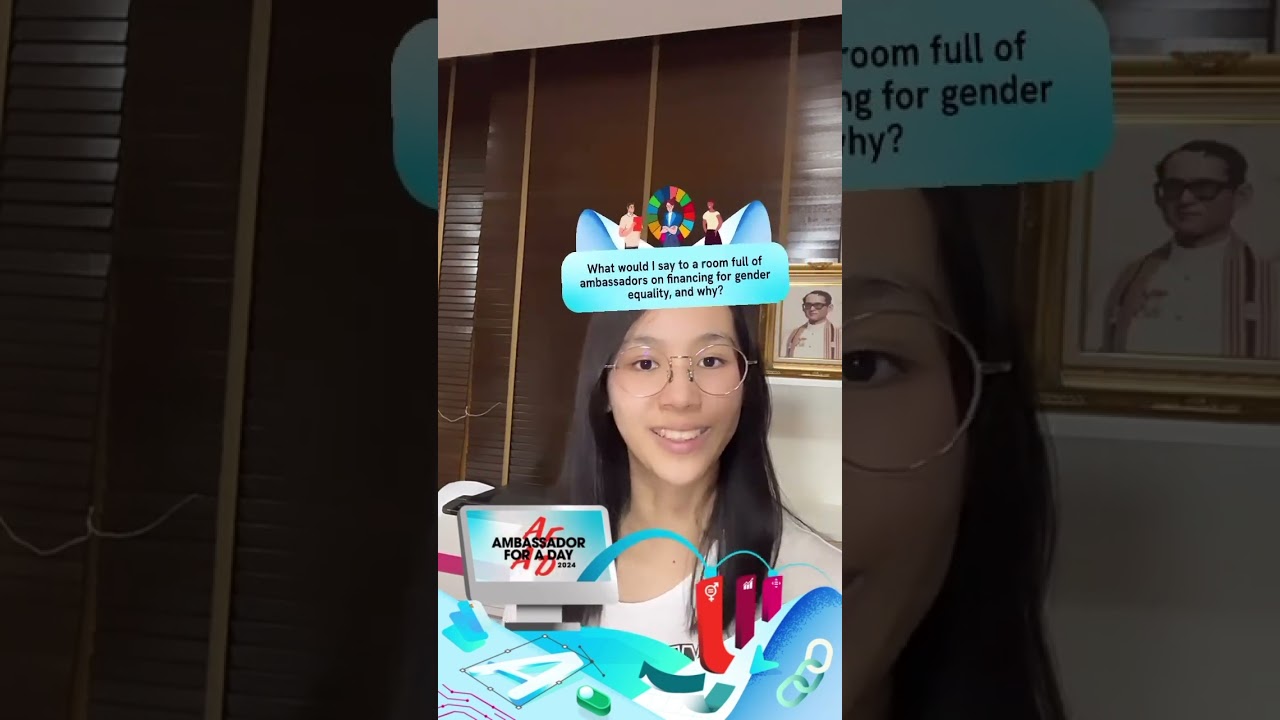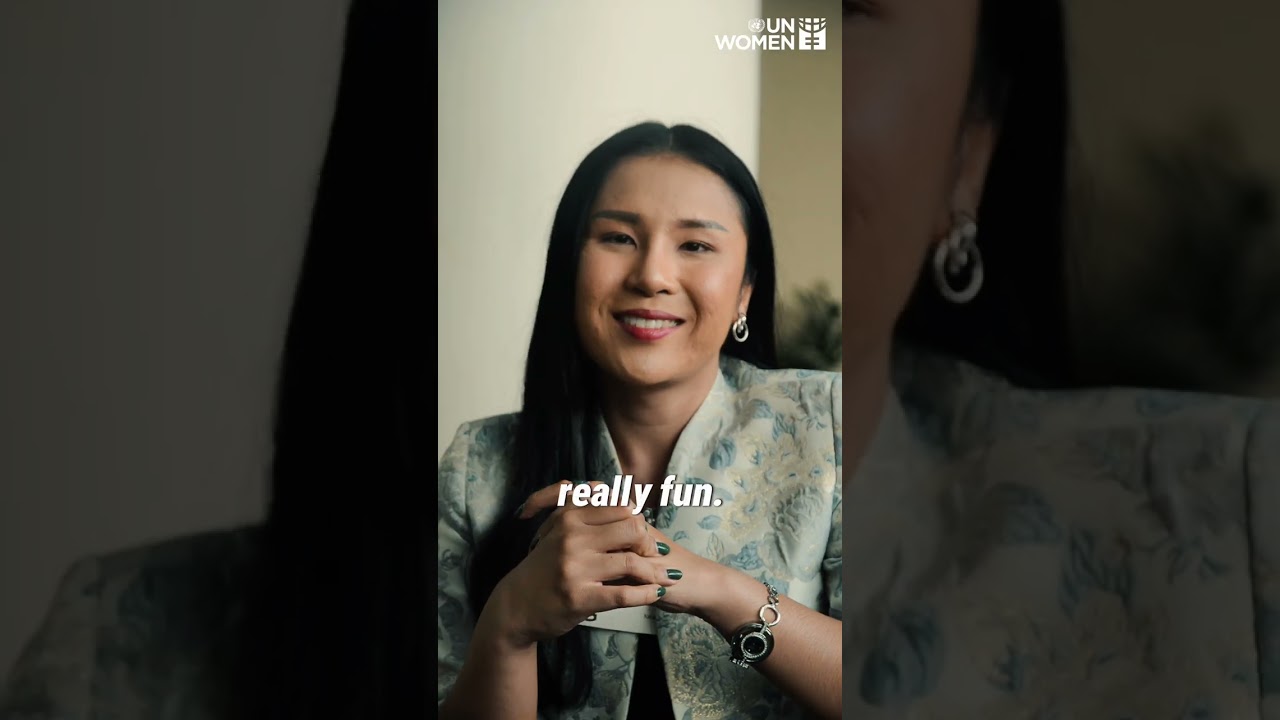
Apichaya Pothong. Photo: UN Women/Tanaporn Piriyasupasin
Apichaya, 21, is a political science student at Thammasat University in Bangkok who works as an assistant and policy analyst for a Member of Parliament. She said:
“One urgent issue of gender inequality lies in the accessibility of jobs and recognition as experts.
Traditional gender roles have shaped expectations about which fields are considered suitable for men and women, leading to the marginalization of women in certain industries. Additionally, systemic barriers such as lack of access to education, gender-based discrimination in hiring and promotion, unequal pay, and limited support for work-life balance further exacerbate the problem.
Investing in women is essential
Firstly, empowering women unleashes their untapped potential. By providing women with equal opportunities for education, employment and leadership positions, we can harness their talents to drive innovation, foster economic growth, and build more inclusive and equitable societies.
Furthermore, increasing the representation of women in leadership positions is crucial for creating more diverse and inclusive decision-making processes.
Moreover, investing in women's empowerment has ripple effects that extend beyond individual empowerment to societal transformation. When women are economically empowered, they invest in their families and communities, leading to improved health, education and economic outcomes for future generations.”
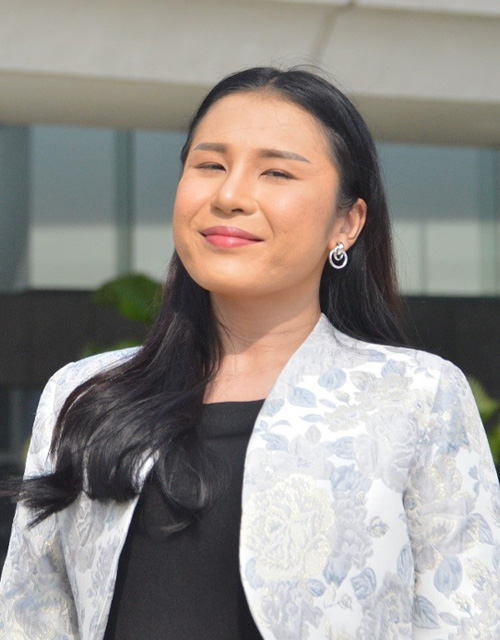
Kanachai Seengam. Photo: UN Women/Tanaporn Piriyasupasin
Kanachai, 25, works as a client consultant and assistant with a plastic surgeon in Bangkok. She said:
“As a transgender woman, I still encounter prejudice and inequality in career opportunities, face rejection by some segments of society, and experience disparity in accessing welfare services, particularly in health care. We face various kinds of discrimination simply because of our LGBTQ+ identity.
The cause of this issue lies in structural, cultural and religious factors, as well as oversimplified stereotypes and beliefs passed down through generations. Additionally, lack of access to education and modern knowledge, along with differences in social backgrounds, further contribute to this issue.
Both women and LGBTQ+ individuals have demonstrated their ability to excel professionally in various fields. Investing in women and LGBTQ+ people is crucial for fostering equality across all levels of society. This includes providing equal opportunities, employment and welfare to promote justice for a more equitable and harmonious society.”
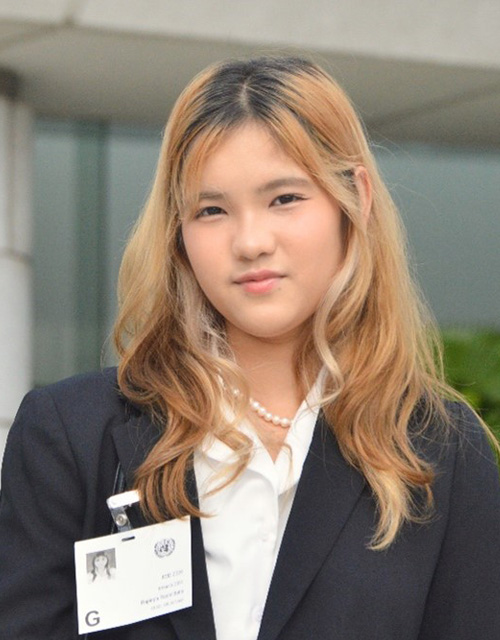
Rapinpa Rasmidatta. Photo: UN Women/Tanaporn Piriyasupasin
Rapinpa, 16, is a student at Bangkok International Preparatory and Secondary School, where she started the Girl Who Code club. She said:
“When I think about gender equality, it reminds me of diversity. Diversity is about creativity and innovation. Diversity will generate more ideas and lead to better approaches to solving problems.
The urgent issue is gender inequality in the STEM field, which prepares young individuals for careers in fields such as engineering, computer science and other technical fields. Engineers are making big advances in our society, and we rely on these engineers to make changes, for example, in global warming and environmental issues that are currently considered one of the top priorities in the world.
Since women and girls represent half of the world’s population, they should take part in any future tech developments. However, women are often underrepresented in these fields. It is crucial to invest in women because they will bring about an inclusive environment to the team and they can add creativity, diversity and sensibility, making the work more human, adding more depth, and ensuring sustainability.”
In photos
Scroll < > to view more photos. Photos: UN Women/Tanaporn Piriyasupasin
